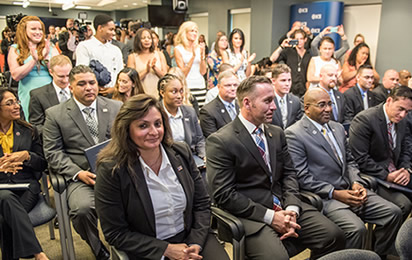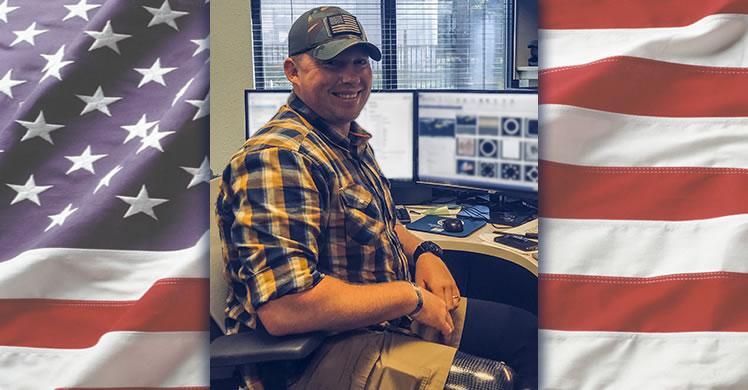Archived Content
In an effort to keep ICE.gov current, the archive contains content from a previous administration or is otherwise outdated. This information is archived and not reflective of current practice.
ICE HSI Fayetteville HERO finding his niche
When people come up to Marshall Kennedy and ask, “what happened?” in reference to him being a double amputee, he invokes a touch of humor in his response.
“My go-to line is that I just put my foot in the wrong place in Afghanistan,” Kennedy said. “You have to find humor in it.”
That “wrong place” was actually an IED that Kennedy stepped on during an operation with the United States Marine Corps in 2011. The Marine Sergeant lost both legs and suffered major injuries to his left arm and shoulder.
During his rehabilitation at Walter Reed National Military Medical Center in Bethesda, Maryland, Kennedy first heard about a new program that was starting designed for wounded, injured and ill Special Operations Forces to receive training in high-tech computer forensics and law enforcement skills.
It was the Human Exploitation Rescue Operative (HERO) Child-Rescue Corps program, developed by U.S. Immigration and Customs Enforcement’s (ICE) Homeland Security Investigations (HSI), the National Association to Protect Children (PROTECT) and the U.S. Special Operations Command (SOCOM).
“One of the initial HEROs, Justin Gaertner was there. He and a few other people were talking about it,” Kennedy recalls. “At the time I remember thinking ‘I don’t want to do anything with computers.’”
Kennedy always had an interest in law enforcement. Raised in Arkansas, he either wanted to join the military or law enforcement once he grew up. Now, a double amputee, he knew a typical law enforcement career path was not going to be the same.
After enrolling at the University of Arkansas to pursue a degree in criminal justice, nearly four years after the first HERO class started, Kennedy found himself wondering what his next steps would be. It was around that time that an opening in the HERO program presented itself. He applied on July 4, 2016, and started his two weeks of child exploitation training which was followed by nine weeks of digital forensics training at the Cyber Crimes Center in Fairfax, Virginia, in January 2017.
In his current role as a computer forensic analyst with HSI Fayetteville (Arkansas), Kennedy supports the agency’s fight against cybercrimes by identifying and rescuing child victims of sexual abuse and online sexual exploitation.
“The HERO instructors do their best to understand that not everyone is on the same level of having a background in computer forensics,” Kennedy said. “Most of the people who apply for this are coming from a military background. It was difficult because it was something new and they’re pushing a lot of knowledge in your head at one setting.”
For many veterans like Kennedy, part of the transition from military to civilian life is finding that niche where you feel accomplished and you’re part of something meaningful. The HERO program gives wounded veterans like Kennedy that purpose.
“It was great to know and see other people like me and know that there’s a program for us and there’s something that I can still do,” Kennedy said. “The beauty of working with HSI is it’s multi-mission. I’ve learned a lot since being here; and just like in the Marines, knowing who I’m with and what I’m a part of is important.”



